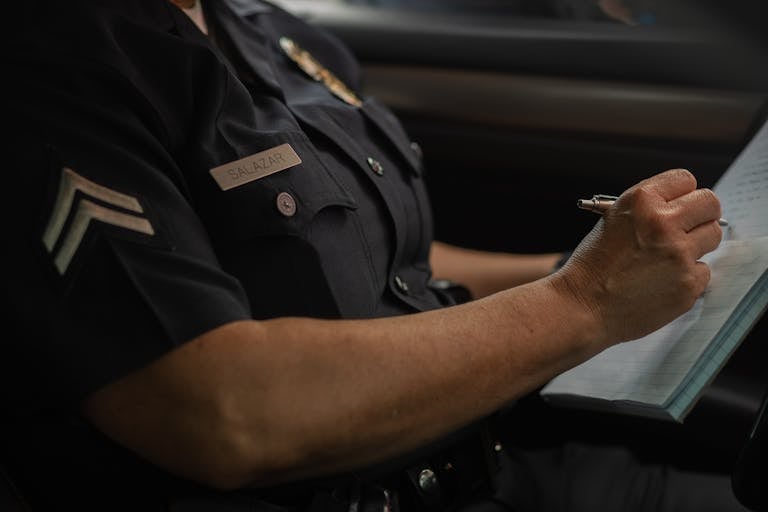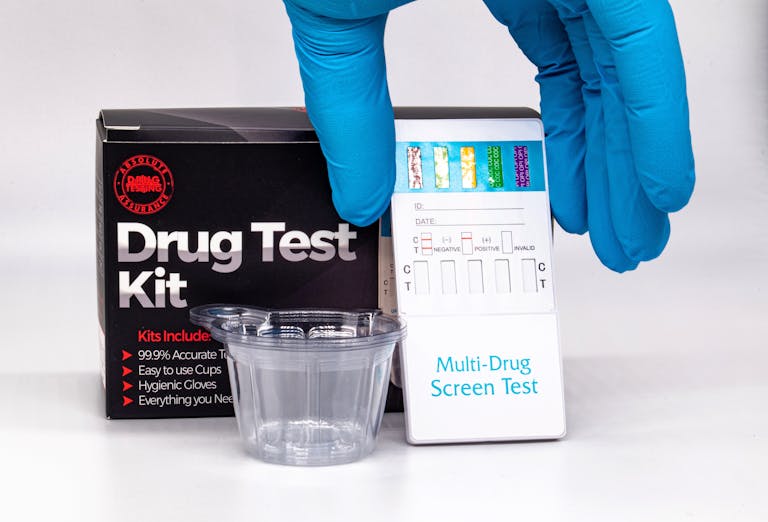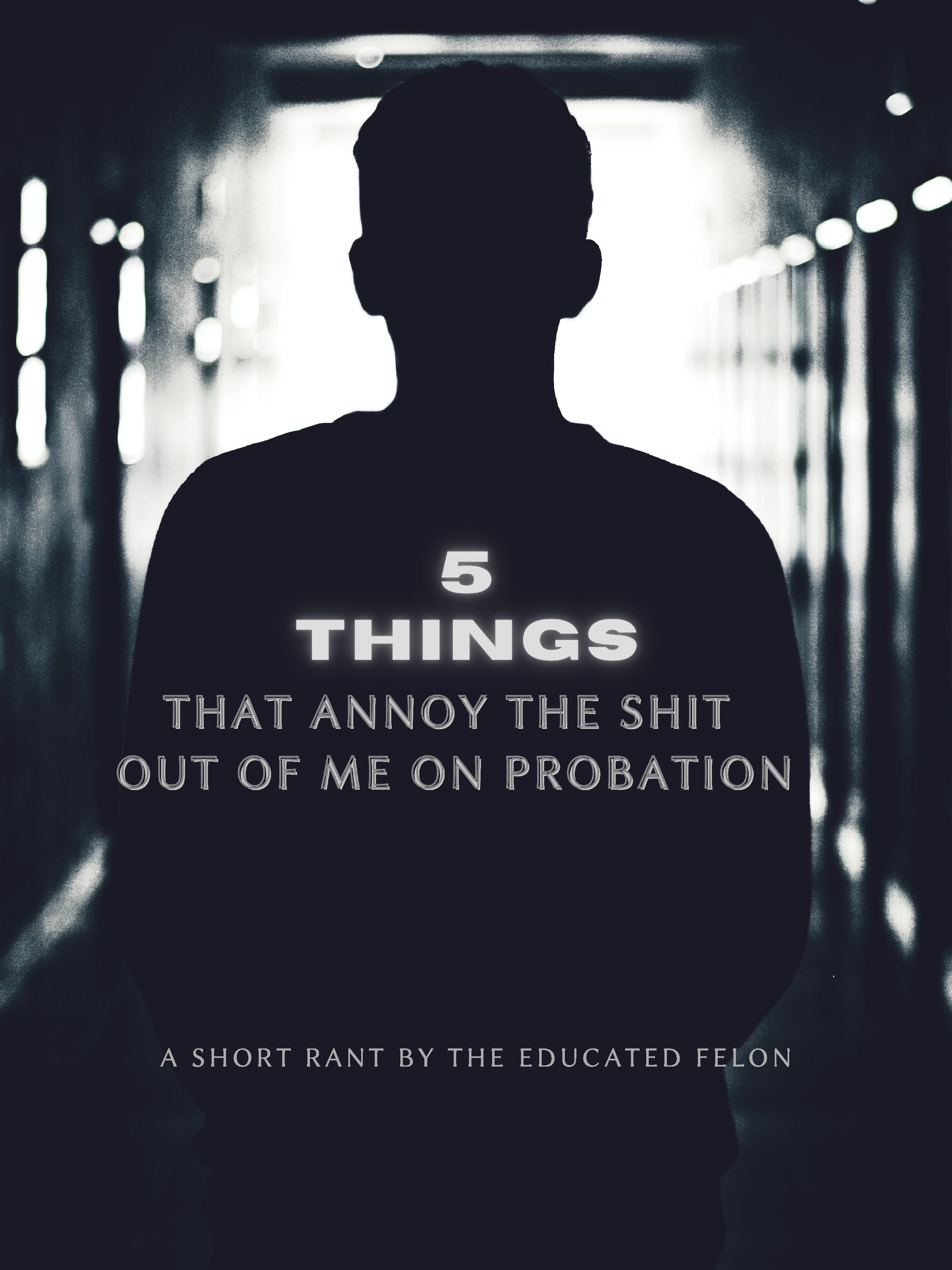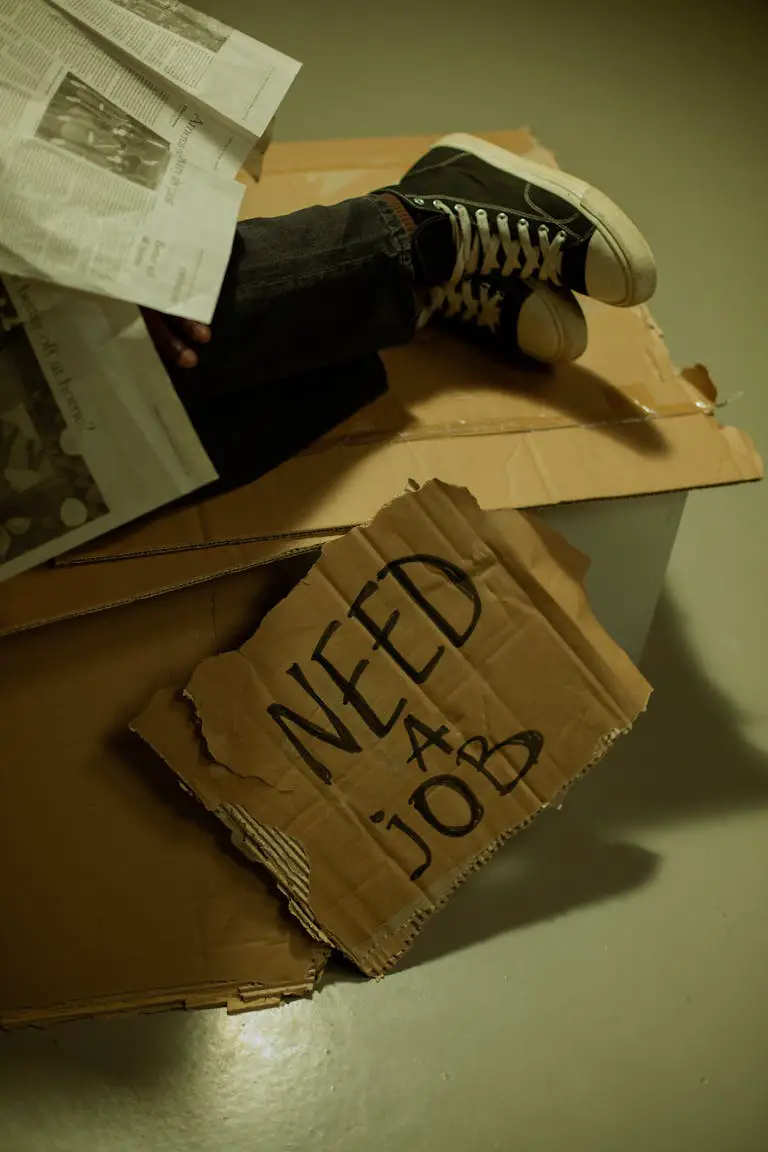What to Tell Your Probation Officer When You Fail a Drug Test
Description: Learn how to handle failing a probation drug test responsibly. Get advice on communicating with your Probation Officer, understanding your rights, and taking positive steps forward.
Introduction
After spending numerous years on some form of community supervision (I’m not bragging), I’ve witnessed countless individuals face that dreaded moment of a failed drug test. Yeah, I could tell you some real doozies as I have sat there waiting in a probation office as I overheard and saw some truly disturbing things.
Of particular usefulness, I have seen some bad reactions, and certain things that have been said that did not help someone’s particular situation. If only they reacted in a different manner, said something more appropriate given the shitty, awkward circumstances… then maybe they would not have had as severe consequences as was handed to them.
Yep, being in violation of probation due to a failed drug test happens quite often. That said, one should not be ill prepared if and when this situation were to arise due to one’s irresponsible creation and doing.
Drug Test Violation Statistics (2024)
| Violation Type | First Offense | Second Offense | Third Offense |
| Failed Drug Test | Warning/Increased Testing (65%) | Mandatory Treatment (85%) | Jail Time (90%) |
| Missed Test | Warning (75%) | Strict Monitoring (80%) | Violation Filed (95%) |
| Diluted Sample | Retest Required (95%) | Violation Warning (85%) | Court Hearing (90%) |
What to Do Immediately AFTER Failing a Drug Test
What to Do Immediately After Failing a Drug Test
Immediate Response Steps:
1. Stay Calm and Professional
- Take deep breaths and maintain composure – Your anxiety is understandable, but visible panic can make the situation worse. Practice slow breathing and remember this shitty, awkward moment will pass.
- Remember that your immediate reaction can significantly impact the outcome – POs and testing staff often note client behavior in their reports. A professional response now can help your case later.
- Document everything that happens during and after the test – Write down names of staff present, exact times, and any comments made. This detailed record could be crucial if there are any procedural questions later.
2. Request Documentation
- Ask for a copy of the test results – Be polite but firm in requesting this documentation. Most facilities are required to provide you with this information, and having it will be essential for any future discussions.
- Note the specific substances detected – Understanding exactly what showed up in your test helps you prepare accurate explanations regarding prescription medications or other relevant factors.
- Get written confirmation of any follow-up requirements – Don’t rely on verbal instructions alone. Request written documentation of next steps, deadlines, and specific requirements to ensure nothing is missed.
3. Schedule a Meeting
- Request an immediate appointment with your PO – Don’t wait for them to contact you. Being proactive shows responsibility and can help mitigate potential consequences. Try to secure a meeting within 24-48 hours if possible.
- Prepare any relevant medical documentation – Gather all prescription bottles, doctor’s notes, and medical records that might be relevant. Having these ready before your meeting demonstrates preparedness and transparency.
- Consider bringing a support person if allowed – Check your probation guidelines about bringing someone for moral support. This person should be someone responsible who can remain calm and professional during the meeting.
The Honest Approach
Sarah, a 28-year-old on probation for a DUI, tested positive for marijuana. Instead of making excuses, she immediately said: “I made a mistake at a party last weekend. I’m not proud of it, and I want to get help.” Her Probation Officer appreciated her honesty and arranged for outpatient counseling rather than filing a violation.
Detection Windows and Documentation:
Common Drug Detection Periods:
- Marijuana: 3-30 days
- Cocaine: 2-4 days
- Heroin: 1-3 days
- Methamphetamine: 2-5 days
- Prescription medications: Varies by drug
Understanding the Consequences
Potential Outcomes:
1. Administrative Sanctions
- Increased testing frequency
- Additional reporting requirements
- Modified probation terms
- Mandatory counseling sessions
2. Legal Consequences
- Probation violation hearing
- Potential jail time
- Extended probation period
- Additional fines and fees
Constructive Steps to Take
Building Your Response Plan:
1. Documentation Steps
- Keep a detailed journal of all probation-related activities
- Maintain copies of all medical records
- Save receipts from any treatment programs
- Record all communication with your PO
2. Treatment Options
- Research local rehabilitation programs
- Look into outpatient treatment options
- Consider support group meetings
- Investigate therapy services
3. Support System Development
- Connect with family and friends
- Join recovery support groups
- Seek mentorship opportunities
- Build professional support networks
What Not to Do After a Failed Test
Critical Mistakes to Avoid:
1. Dishonesty and Excuses
- Don’t provide false explanations
- Avoid blaming others
- Never attempt to falsify documents
- Don’t minimize the situation
2. Poor Communication
- Don’t ignore calls from your Probation Officer
- Avoid missing appointments
- Don’t withhold relevant information
- Never be confrontational
3. Legal Missteps
- Don’t refuse follow-up testing
- Avoid traveling without permission
- Don’t miss court dates
- Never tamper with samples
The Wrong Approach
Tom tested positive and became defensive, claiming the test was wrong and demanding retests. His combative attitude led to stricter monitoring and ultimately a violation hearing. This illustrates how your reaction can significantly impact outcomes.
Legal Options and Rights
Understanding Your Position:
1. Testing Rights
- Right to confirm test results
- Access to testing procedures
- Documentation requirements
- Appeal process details
2. Medical Considerations
- Prescription documentation
- Medical marijuana laws
- Health condition accommodations
- Treatment program options
Building a Recovery Plan
Creating Your Path Forward:
1. Treatment Program Selection
- Evaluate program types
- Consider insurance coverage
- Research success rates
- Look into location options
2. Support Group Integration
- Find local meetings
- Build accountability partners
- Develop coping strategies
- Create recovery milestones
Rebuilding Trust with Your Probation Officer
Communication Strategies:
1. Professional Interaction
- Schedule regular check-ins
- Maintain organized records
- Follow through on commitments
- Show initiative in recovery
2. Progress Documentation
- Track treatment attendance
- Document lifestyle changes
- Keep counseling records
- Monitor personal growth
Real-Life Scenario
The Medical Situation
Michael tested positive for opioids but had recent dental surgery. He brought his prescription documentation to his PO immediately and said: “I should have notified you about my procedure beforehand. I have all the documentation here, and I’ll always inform you about medical changes in the future.” His proactive approach resolved the situation without penalties.
Strategic Communication Phrases
Effective Phrases to Use:
Taking Responsibility:
- “I understand the seriousness of this situation and take full responsibility.”
- “I know I’ve let you down, and I’m committed to making this right.”
- “This was a moment of weakness, but it’s shown me I need additional support.”
Showing Commitment to Change:
- “I’ve already looked into treatment programs and would like your recommendation.”
- “I’m willing to increase my testing frequency to prove my commitment.”
- “I’d like to voluntarily attend additional counseling sessions.”
Discussing Future Prevention:
- “I’ve identified my triggers and have developed a new support system.”
- “I’ve cut ties with negative influences in my life.”
- “I’ve joined a support group and have my first meeting scheduled.”
Frequently Asked Questions
Q1: What happens immediately after failing a probation drug test?
Your probation officer will typically document the failed test and may schedule an immediate meeting. Consequences vary by jurisdiction and circumstances but often start with increased monitoring or mandatory counseling for first offenses.
Q2: Can I request a second drug test if I believe the first one was wrong?
Yes, you have the right to request confirmation testing, but it’s important to make this request professionally and understand that you may be responsible for the cost. The second sample is usually tested using more accurate methods.
Q3: Will I automatically go to jail for failing a drug test while on probation?
Not necessarily. First-time failures often result in increased supervision or mandatory treatment rather than immediate jail time. Your response to the situation and previous compliance history play significant roles in the outcome.
Q4: What if I failed because of prescription medication?
If you have a valid prescription, provide documentation immediately. Always inform your probation officer about new prescriptions beforehand, and maintain copies of all medical records.
Q5: How long do I have to notify my probation officer about a failed drug test?
Best practice is to address it immediately. Many jurisdictions require notification within 24-48 hours. Prompt, honest communication shows responsibility and can positively influence how your case is handled.
Conclusion
Failing a drug test during probation can present some serious challenges, BUT your response and attitude can significantly impact the outcome.
Do not underestimate the power of your response and how it factors into the consequences. Focus on honesty, responsibility, and commitment to positive change. Remember, one setback doesn’t define your future, but your response to it might.
Legal Services
Need expert legal help with a probation violation? Our network of experienced attorneys specializes in probation cases and can help protect your rights. Contact Legal Shield for a consultation:
Final Thoughts & Next Steps
While facing a failed drug test on probation is challenging, your response and recovery plan are crucial to moving forward. Remember that rebuilding trust with your probation officer is a gradual process that requires consistency, honesty, and dedication. In fact, some probationers have found that handling this situation appropriately actually led to a stronger relationship with their Probation Officer in the long run.
Looking for a comprehensive article on rebuilding trust with your probation officer? Read my detailed post: “How to (Re)Build Trust with Your Probation Officer” where we dive deep into proven strategies, communication techniques, and step-by-step approaches to restore your Probation Officer’s confidence in your rehabilitation journey.








One Comment